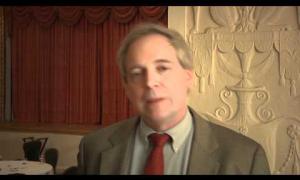“You should have heard the lion himself”
May 03, 2011
Comfort food for speechwriters: the permanence of oratory.
“Men still talk to each other face to face, and oratory still plays a great part in the instruction of modern times,” said onetime Congressman Thomas B. Reed in introducing the first volume of the Modern Eloquence series, published in 1900.
It is true that the orator reaches his largest audience by aid of the newspaper, but the newspaper nowadays depicts the applause and dissent of the audience, and gives, so far as it can, the atmosphere with which the orator is surrounded, and makes the reader appreciate the full human nature involved in the whole scene. The every postures, also, of the orator are displayed.
But, however well any article may be written, and however well any speech may be reported, there is a charm in the spoken word, in the utterance of the living man, which no beauty of style can imitate, no collocation of words can equal.
Probably Aeschines never said, “You should have heard the lion himself” … —but .. if the story was invented—it was because the truth was deeper than the fact.
(Thanks as usual to Vital Speeches rheditor (yeah, that’s also my term) Neil Hrab.)


